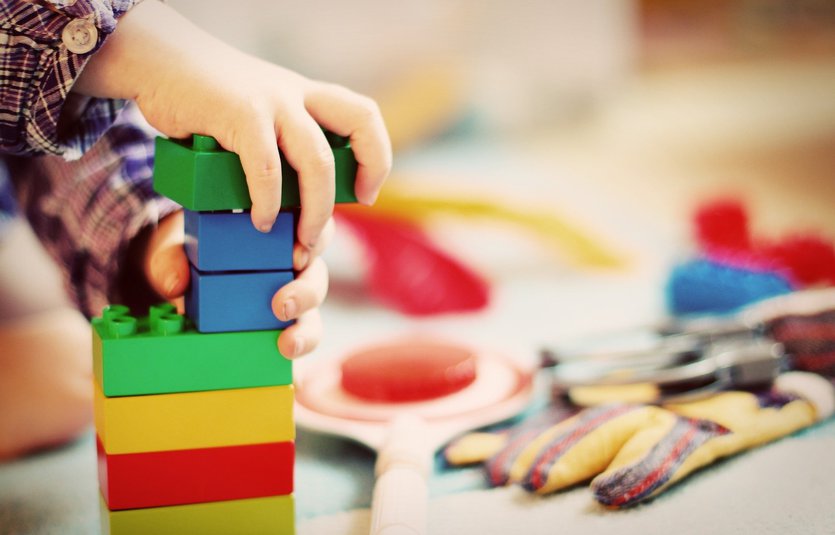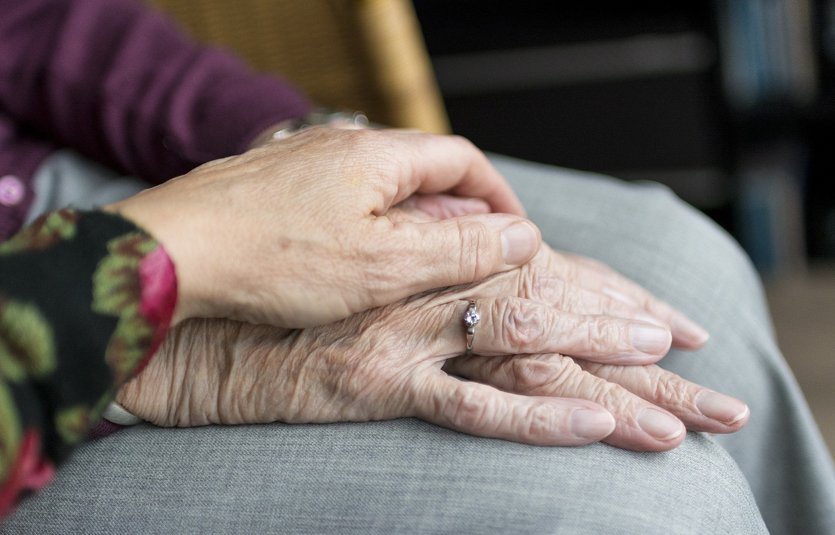Family and relationships
The outbreak of the Corona virus turns the lives of many families upside down. The changes are often massive for children, mothers and fathers. This can particularly unsettle the children and make them afraid. It is important to explain the situation to them in a child-friendly way.
The spatial confinement can put additional strain and lead to increased disputes and even violence. The lack of alternative options makes the “thick air” particularly stressful.
In addition to daycare, kindergarten or school, children and young people also lose many leisure activities. At home, the use of media is particularly attractive for young people. It is important to agree certain rules.
The restrictions in personal contacts particularly affect older people and those in need of care. They therefore need special support and support from the family.
Here you will learn how you can meet your needs and the needs of people close to you in different challenges.
Everyday life with children
As parents, it is your responsibility to give your children support during the crisis. For this, it is important to know what children need in crises and exceptional situations.
What do children need now?
Exceptional and stressful situations can scare and worry children. They then make more use of their parents. For example, you are looking for more physical contact or are less able to deal with yourself or you want to sleep with your parents in bed again.
If the parents are anxious and worried, it can also happen that the children take these feelings from their parents. You then react with fear, uncertainty, tension and nervousness yourself, without knowing exactly why.
Children need in crisis situations :
- Parents (or other caregivers) who handle the Coronavirus calmly and confidently. This means that the parents are relaxed and "normal" as much as possible.
- more attachment, for example by cuddling or having nice moments together.
- More attention, for example by listening carefully and asking how the child is doing.
All of these things create a sense of security in children. More information can be found on the World Health Organization website.
How do I know if my child is scared or worried?
Children do not always want or can speak of their own concerns and fears. It is therefore important that we parents have an eye on possible signs of this and that we are careful.
Worries and fears are expressed differently in children due to the different ages and temperaments.
Take a look at the list below ' dealing with children It gives you information about which behaviour or appearance is particularly noticeable in which age group.
You know your child best. Also pay attention to whether you notice changes or strange behaviour, for example, that the child retreats to his room more often.
How can I support my child well and give him support?
As a parent or caregiver, there are three main ways you can do this:
- Through a fixed daily schedule: A fixed daily routine with rituals and routines is more important than ever in exceptional situations. Children can often get a feeling of normalcy as a result: Give your child or children a kind of "menu" of fun activities. Give the children practical instructions and involve them in everyday situations, such as cooking food.
- By protection: Protect your child or children, especially against news about the Coronavirus, keep the information and message time to a minimum. Also, use news programs that are suitable for children .
- Through openness: if your child has any questions about the Coronavirus or other messages, please respond. Explain in child-friendly language what the information means. Be honest and factual. Child - friendly news programs can also help here. Explain to your children the changes that are caused by the virus, for example wearing protective masks. Take time to talk to your children. Listen carefully to children's questions, concerns and ideas. They can express these ideas in very different ways, for example, through drawings. So feel free to ask if your child is painting or drawing something
How do I explain the current situation to my child in an age-appropriate manner?
Younger children and children who understand less about speaking or reading better understand drawn or painted explanations (e.g. caricatures). You can also express yourself better, for example, through drawings.
Discuss with younger children, in simple and factual terms, why so much is different than usual. Also, explain if you may be less patient than usual at the moment. Children perceive feelings and moods in their environment very early on. If you know that it has nothing to do with you, it can be very relieving. Not speaking openly to the children so as not to burden them can do the opposite.
If you don't know the answer to a question, feel free to admit it. At the moment there are simple questions about the Coronavirus, to which we have no answers.
Overwhelmed with children and work - what to do?
Many single parents are overwhelmed by the current situation because they have to continue doing their normal work without childcare. For many, this seems an impossible task at the moment. Even with families with many, especially younger children, it can be difficult to reconcile children and work. If no support from family or friends is possible, offers from so-called neighbourhood helpers can support.
Children and digital media
In the current situation, the use of digital media can make things easier for parents. Children may not be able to leave the house or apartment. The media keep them busy and keep in touch with friends. Parents are relieved.
At the same time, digital media can also be addictive. The addictive potential of digital media in children and adolescents (and also in adults) has been scientifically proven.
To avoid this, the following should be considered:
- Pay attention to which media is used. Children, in particular, should not use game apps. These are designed in such a way that they have particularly high addiction potential, also for young people and adults. For example, in some games, there is pressure to continue playing at certain regular intervals in order to win points.
- The use of (digital) media should happen in combination with a regular daily schedule. Specifically, this means: in a daily or weekly schedule, specify exactly when and when your children can work with (digital) media. Depending on the age of the children, you can set the times together with them.
- You can also use the media together with your children. Maybe there is a film that you can watch together. Or you can make a video call together with your grandparents or other family or friends. Or you play with or against each other.
- Furthermore, digital media and everyday structure can be combined as follows: The children can re-enact the content of the films or games in movement activities or paint them in their own drawings and pictures.
- Everyday life should not only be about digital media. Consciously promote joint activities that have nothing to do with the media. For example, cooking food, board games, telling stories or drawing. Here again, a fixed daily schedule can help.
Family conflicts
Living together in a confined space, the temporary "loss" of personal contacts and the loss of employment and care opportunities put many families under pressure. It is not uncommon for such a tense situation to “discharge” in increased arguments and louder discussions. Mindfulness and understanding for yourself and others is particularly important at the moment.
How can I take the stress out of everyday family life?
Disagreements and arguments in families are in themselves quite normal and every day. Many families have developed good strategies to deal with it in "normal" times. However, the current challenges and emotional stress can lead to nerves being bare. Even minor conflicts worsen faster and more frequently.
Suggestions and strategies :
Take good care of yourself and your children. First of all, it is important not to forget that the current situation is an exceptional situation for everyone involved. So it is completely normal to worry, to be tense or stressed, or to “get out of your skin” faster than usual. This applies to both adults and children. Give yourself and your children credit for enduring this situation and dealing with it in the best possible way. And be merciful to yourself and your family if everything is not going smoothly. So that worries, tension and stress do not develop into a permanent state that has a lasting effect on the mood in the family, it is also good self-care or Cares for the children required. If you’re very under pressure or exhausted yourself, then you should definitely take care of yourself. Only then can you be there for your children. Just as it is always pointed out on the plane that you should first put on the oxygen mask yourself and then help others.
You will probably know best yourself what helps you to relax, to draw energy or to find inner peace. For many people, this is a conversation (or telephone call) with a familiar person, a walk-in nature, listening to their favourite song or an undisturbed "break", for example with a cup of coffee or favourite tea. If possible, reserve a fixed time every day.
If you are (to some extent) calm and relaxed, that's one of the most important things you can do for your children.
Clarify and change stressful situations
In some family conflicts, it can also be helpful to look at the "organizational" level and first think about:
- Which everyday situations stress me exactly? for example, I should concentrate on my home office and get constantly disturbed; the children quarrel so often and I have to intervene arbitrarily; the apartment is getting messier, ...
- Why do these situations cause me stress? For example, it is important to me to do a good job or I am afraid of losing my job otherwise; A harmonious relationship in the family is important to me or I lack the strength to resolve so many conflicts at the moment, I need some rest; I need a certain degree of order and cleanliness so that I feel good or I wish that the whole household doesn't stick to me, but that everyone participates a bit.
- What do I need to be more relaxed in this situation? (important: not, how should the others behave or change), eg if I could work undisturbed for three hours a day, then I could do the most important things and it would not be so bad if I was disturbed afterwards; if I get half an hour of “time out” during the day for the children to work for themselves, then I could deal with their arguments more calmly afterwards; if at least the floor is vacuumed once a week and the bathroom and toilet are cleaned and the children help here, then I could endure that the other rooms are a bit messier.
- How could that be implemented? What would the others need for this? Here you can discuss your needs with the others and negotiate how this could be implemented.
Find out needs and take them into account in everyday life
Your children may also be stressed because they are unable to meet their needs well. Maybe they miss their friends. Perhaps they lack movement or a varied job.
Ask and listen carefully to how your children are doing. Ask what is good, what is not so good and what you need or want.
In order to reduce conflicts in everyday life, a schedule that structures the day can be very helpful. When planning, the needs of everyone (e.g. time for themselves, time together, who may use which media when, who may use which room and when) should be negotiated and taken into account.
Increase positive moments
Family stress can not only be reduced if what is stressed is reduced. It also helps if what is good and relaxing is increased.
Perhaps you will find time for walks and conversations, cook a favourite meal once a week or write love messages on the bathroom mirror. Be creative. Maintain positive daily rituals. Examples include the bedtime story together, hot cocoa, tea or fruit plate together in the afternoon, a daily tour of the garden, favourite music and dancing together in the morning or whatever suits your family.
Caring for relatives and family members
The care of sick or elderly relatives and close people usually takes place in two different situations: Either the people in need of care live in their own home or they are cared for and cared for in a home or other support facility.
The clinical pictures that require care are different. Some people have cancer, others suffer from dementia, for example. The need for care varies accordingly.
Dealing with the disease and the compatibility of care and work are often a great challenge in themselves. During care in a facility, the visit ban or visit restrictions make it more difficult during these times.
Below you will find answers to questions that many are currently asking:
What can I do if I cannot visit my relatives or friends in the nursing home? How do I make sure they get what they need?
Make more use of the contact channels that are still possible. These can be phone calls, video calls or letters, for example. Ask how your relatives or friends are currently doing.
How can you involve older people and those in need of care and let them participate in social life?
Maintain regular contact! Use the possibilities of telephone, internet or even post. Arrange regular appointments for the contact.
If the technical possibilities are there, older people in the family can also be involved in so-called homeschooling. For example, you can read stories to younger children over the phone or on the Internet.
You can also send videos to older relatives that include physical exercise exercises specifically for the elderly.
How do I talk to the elderly about the Coronavirus and the current situation?
Many older people cannot understand the abrupt changes. You feel insecure and sad. Sometimes older people can be reproachful. Then patience with them is important. It may also be necessary to repeatedly explain to them that no one has caused this situation on purpose.
- Share simple facts about what's going on!
- Provide clear information on how to reduce the risk of infection!
- Use words and phrases that older people with/without cognitive impairment can understand!
- Repeat the information if necessary!
- Make clear, concise and respectful instructions!
- It can also be helpful to give the information in writing or in pictures.
What do older people with Alzheimer's or dementia need in the current situation?
Older people, whose ability to think declines and who are suffering from Alzheimer's or dementia, react with stronger feelings and outbursts of feeling. That means they are stressed out and more anxious.
In addition: Older people with Alzheimer's or dementia can often not use the phone or digital media to maintain contacts. Because of their illness, they often no longer know how to operate a telephone. Or they forget what contacts they have.
It is important that older people with Alzheimer's or dementia have a regular daily and weekly schedule. A fixed daily and weekly schedule also helps here. Similar to children, older people with these diseases can get a feeling of security.
Family violence
Where can I find help when disputes become violence?
Stress, the spatial confinement and the loss of protection and escape opportunities lead to an increase in domestic violence against women and children.
The important thing is that you yourself are not to blame if you are violent. The full responsibility for this lies with the violent person! Everyone has the right to respect and to physical and mental integrity!
You don't have to be ashamed if you feel helpless or passed out in this situation. And it is not because you are too weak or unable to defend yourself. Rather, it is part of the violence. You should feel bad and powerless. This gives the violent person more power over you.
Unfortunately, violence in partnerships and families occurs more often than you think. However, little is said about it. It is important to know that you are not an isolated case. There are many who are in a similar situation to you.
If violence is used by people close to you, a way out is particularly difficult. There is often a conflict. On the one hand, there is a desire to end violence and security. On the other hand, there may also be a fear of losing the shared apartment, custody of the children, financial existence, loneliness or the hope of a loving relationship with people. It is also often threatened that violent violence will result in a separation.
Get help!
A first, very important step is to trust yourself to someone. You can also do this anonymously on the phone or over the Internet. There are special offers of help for victims of domestic violence. The counsellors listen to you without urging you to take any action. Sometimes knowing that you are not alone can help a lot.
There you will also learn which protection options are available, which steps are necessary and what consequences they can have.
There is a possibility that you will be accompanied to the police or in court. You can also be supported in the enforcement of the Violence Protection Act. In some cases, financial help is also possible, for example for a necessary move.
Offers of help and support
- The violence of the family is a deadly pestilence: one of the third women in the world will face physical violence or sexual violence. Social distance due to coronation for some people means prison with an evil person. If you, or someone you need help, you can contact them (119) line of violence against women and family to get help secretly. (https://www.facebook.com/SEEDKurdistan)
Help those affected!
Those affected by violence do not always have the opportunity to get information about help options or to get help themselves. Here you can easily help in your neighbourhood, for example by hanging a notice about help in the hallway.





